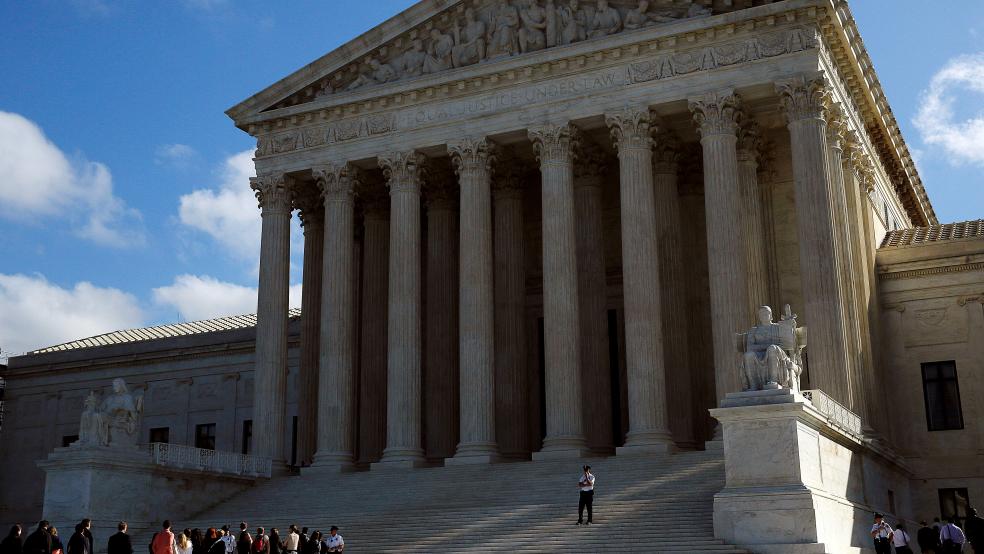WASHINGTON (Reuters) - Democrats fell short in three U.S. states on Monday in their legal battle to impose tighter restrictions on supporters of Republican presidential candidate Donald Trump who plan to monitor Election Day voting for signs of fraud.
The U.S. Supreme Court refused to reimpose new rules on partisan poll watchers in Ohio after an appeals court struck them down, while U.S. judges in Pennsylvania and North Carolina declined Democrats' request to impose new rules that Democrats had sought. Voter intimidation is prohibited under U.S. law, but Democrats worry that Trump's warnings of a "rigged" election in his battle against Democrat Hillary Clinton might inspire supporters to harass minority voters and create Election Day chaos in big cities as they search for signs of vote manipulation. Numerous studies have found that U.S. voter fraud is exceedingly rare. Democrats have asked U.S. courts in six battleground states to impose greater restrictions on partisan poll watchers, arguing that the Trump campaign, state Republican parties and Republican operative Roger Stone are encouraging supporters to intimidate minority voters.Trump's campaign and Republican parties in the various states say their poll watchers are trained to bring evidence of any problems to the party and not confront voters directly."This was an attempt to intimidate Republican people engaging in lawful activity," North Carolina Republican Party executive director Dallas Woodhouse told Reuters.Stone says those working for his planned "exit poll" will be trained to use neutral, non-threatening language. One day before the election, Democrats so far have failed to win any of their legal efforts.A U.S. judge denied the Democrats' case in Arizona on Friday. Monday's rulings in North Carolina and Pennsylvania give Democrats little time for appeals, while the Supreme Court's Monday ruling put to rest the case filed in Ohio.The Supreme Court order, which only covers the Ohio case, included no noted dissents from the eight justices. Liberal Justice Ruth Bader Ginsburg wrote a brief statement noting that "Ohio law proscribes voter intimidation" and citing the relevant law. U.S. judges in Michigan and Nevada have yet to issue opinions.Democrats have waged a separate legal battle against the Republican National Committee, arguing in court that the RNC should be prevented from supporting the Trump campaign's poll-watching effort. A U.S. judge in New Jersey denied that motion on Saturday. (Reporting by Lawrence Hurley and Andy Sullivan; Editing by Will Dunham and Leslie Adler)Democratic voter-intimidation cases falter in three U.S. states

© Gary Cameron / Reuters



